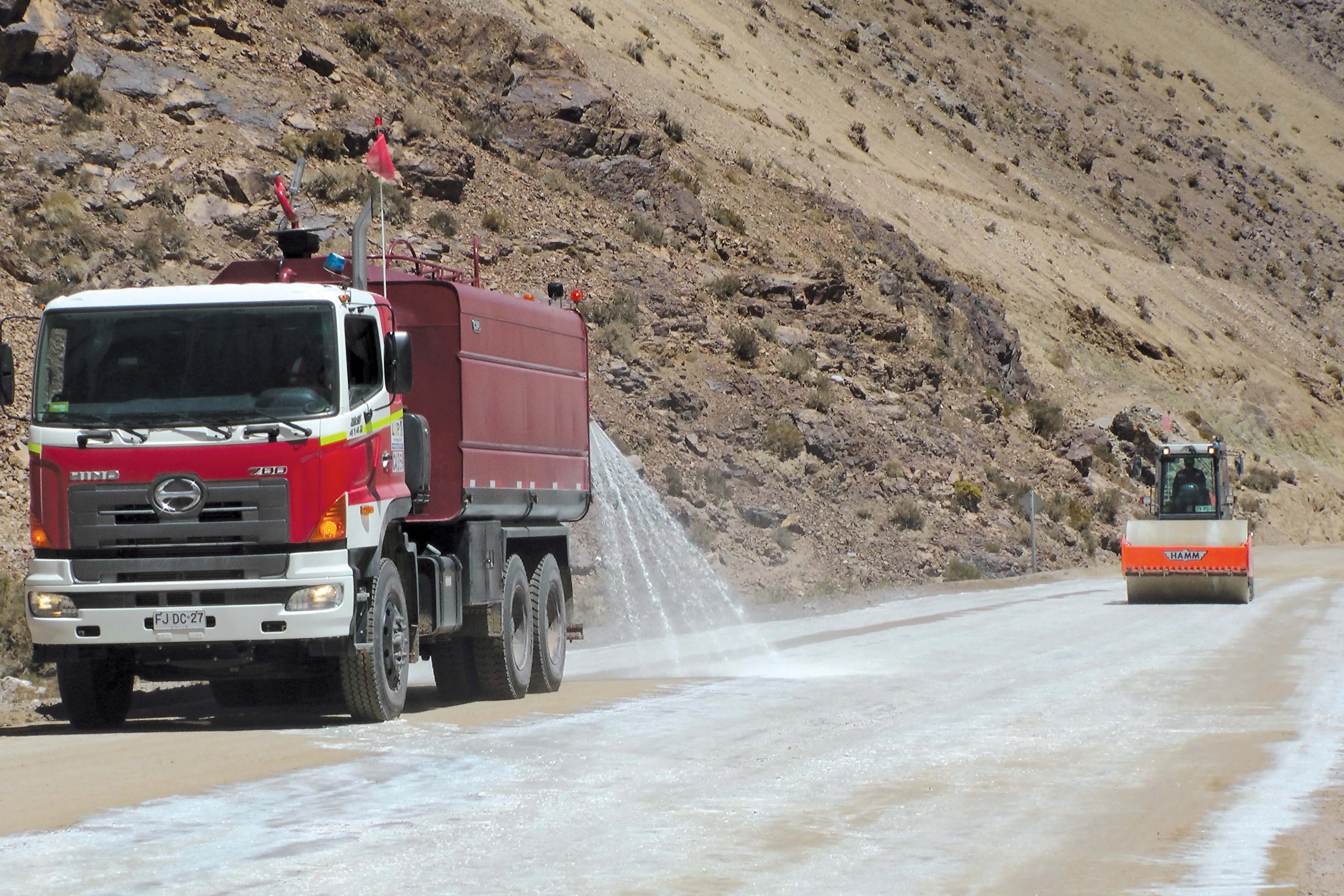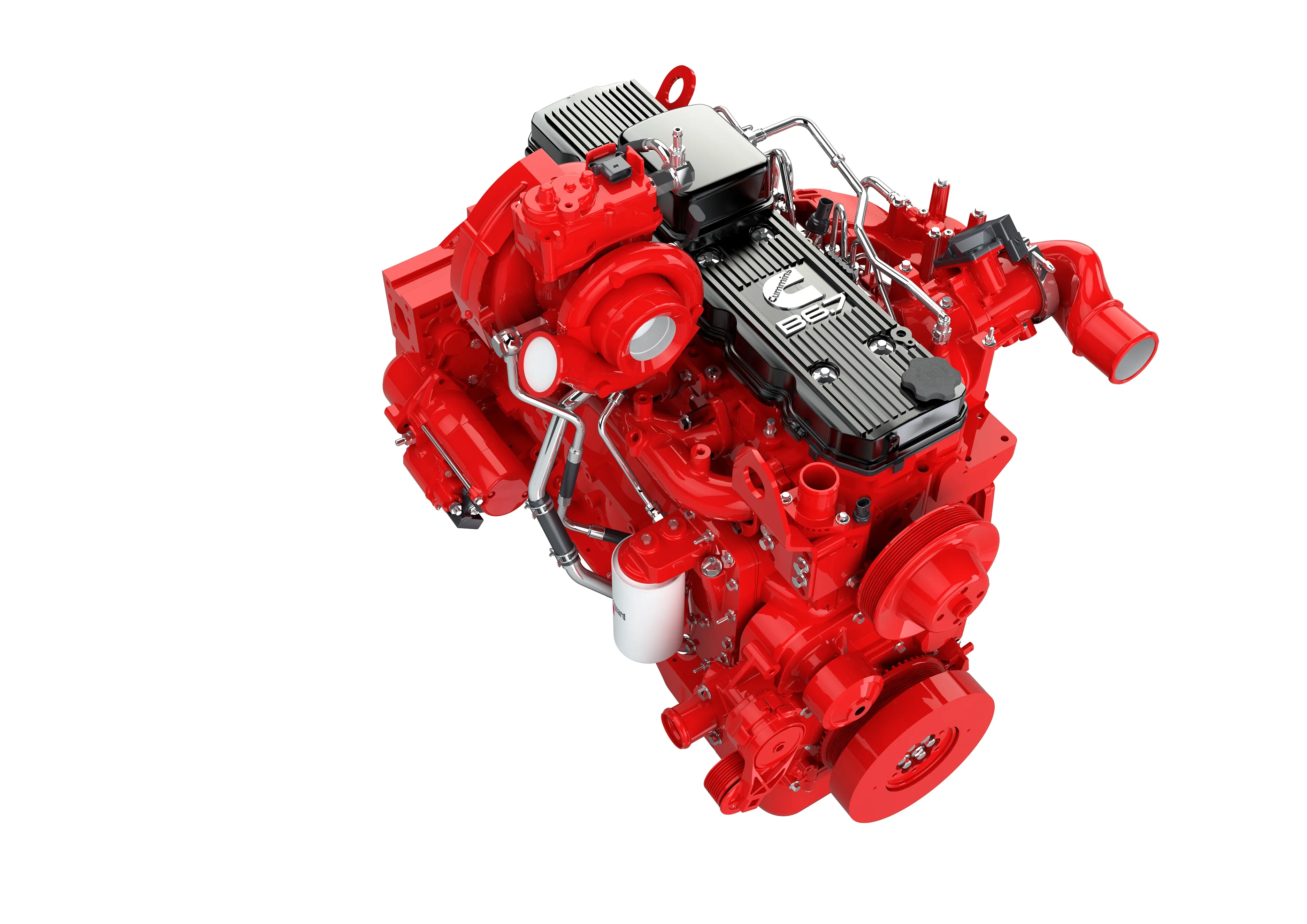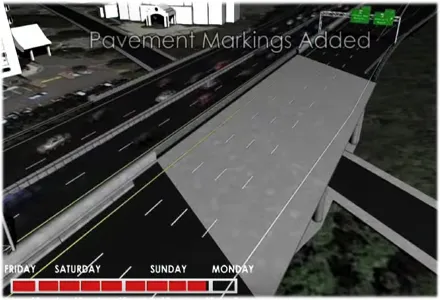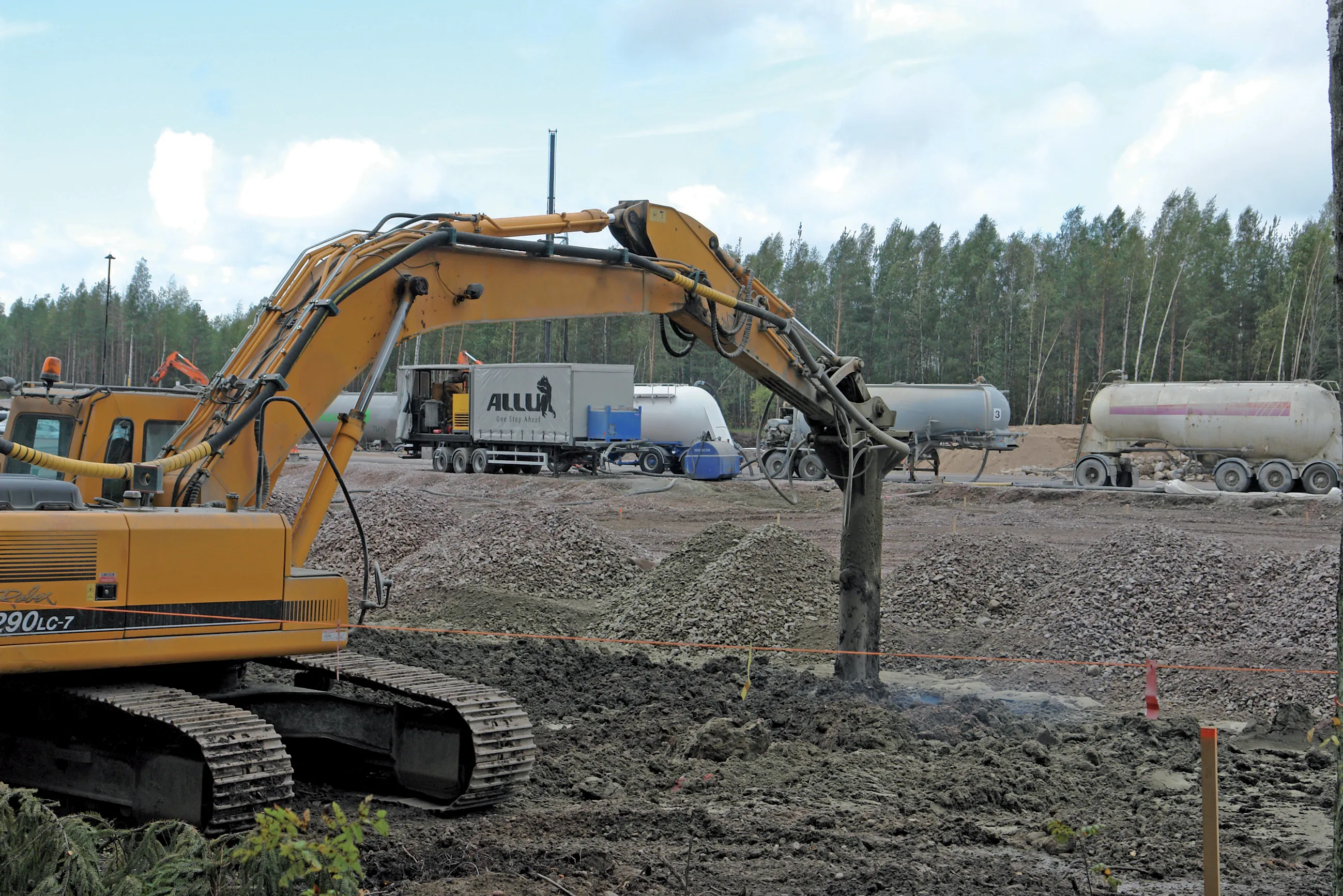The trial of a novel compound at a site in Chile has shown how structural improvements can be achieved for dirt road applications
Although the Barrick Gold Pascua Lama operation is a surface mining site, the experience with this technology is equally applicable for use on haul roads in large quarries or for dirt roads expected to carry heavy loads. This is of particular importance for transport in remote areas where large loads such as pre-cast bridge sections or girders for example may have to be carrie
May 23, 2014
Read time: 4 mins

The trial of a novel compound at a site in Chile has shown how structural improvements can be achieved for dirt road applications
Although the Barrick Gold Pascua Lama operation is a surface mining site, the experience with this technology is equally applicable for use on haul roads in large quarries or for dirt roads expected to carry heavy loads. This is of particular importance for transport in remote areas where large loads such as pre-cast bridge sections or girders for example may have to be carried to site for construction projects.
The trial saw some 2000m2 of haul road being treated at the mine with the Top-Seal product, sourced from Australia. For the first application of Top-Seal (TS), the compound was applied using 1:14 dilution rate from a conventional water truck containing approximately 28,000litres. The truck made several passes during the first day, which in total gave an application rate of approximately 0.3litres/m2. Drying times were achieved in about an hour due to the optimal climate conditions. During the course of the day and into the following morning, the loose soils began to bind and harden as expected.
On the second day, repeated applications of the TS compound using a dilution rate of 1:22 resulted in a final application rate of 0.3litres/m2. After applications were completed and the site was dry, it was determined that all dust particles were eliminated successfully and the road was solidified to the point where, with proper maintenance, erosion and wash boarding will no longer be an issue. In total, the two day process used just over 0.6litres/m2 to meet the objectives.
On the third day the results were reviewed and it became clear that not only had the dust been controlled as intended, but other benefits could be seen. The use of the compound has provided a substantial stabilisation and hardening of the soil, which will eliminate erosion and wash boarding. And the sealing of the surface, in combination with the stabilisation, will drastically reduce the ?amount of water and product required in the future to maintain the road.
The operation has previously required the haul roads to be sprayed with water three times/day, or 21 times/week. This has resulted in substantial costs for the operation so as to maintain the haul roads in optimum condition and reduce wear and tear on the very costly haulage fleet. Attempts to improve the efficiency of the vast amounts of water being consumed resulted in the implementation of a salting programme but this has proven ineffective in arid regions and in some cases harmful to the environment.
Because of the location, the Pascua Lama project is limited to the amount of water it can use for dust control and has frequently exceeded these limitations in attempts to control the dust. However by using the compound, the operation has found an effective solution both for controlling dust and stabilising roads, as well as meeting strict environmental targets.
The trial has shown that with proper maintenance, a dust-free haul road system can be in place for years to come. And the consumption of water for dust control on the haul roads will be reduced by over 90% using a one-week treatment plan. This is a key economic factor as it also cuts the cost of water spraying and haul road maintenance by 90%. Using the compound means that the salting method can be eliminated, removing its cost as well as the environmental and political implications.
During the application of Top-Seal, the haul roads remained operational, with a fast reduction in dust levels. The normal haul road traffic also helped compact the surface and boosted load bearing capacity. The compound has also been used successfully in the tailings area to prevent airborne dust, as well as to improve the surface of the airstrip.
Although the Barrick Gold Pascua Lama operation is a surface mining site, the experience with this technology is equally applicable for use on haul roads in large quarries or for dirt roads expected to carry heavy loads. This is of particular importance for transport in remote areas where large loads such as pre-cast bridge sections or girders for example may have to be carried to site for construction projects.
The trial saw some 2000m2 of haul road being treated at the mine with the Top-Seal product, sourced from Australia. For the first application of Top-Seal (TS), the compound was applied using 1:14 dilution rate from a conventional water truck containing approximately 28,000litres. The truck made several passes during the first day, which in total gave an application rate of approximately 0.3litres/m2. Drying times were achieved in about an hour due to the optimal climate conditions. During the course of the day and into the following morning, the loose soils began to bind and harden as expected.
On the second day, repeated applications of the TS compound using a dilution rate of 1:22 resulted in a final application rate of 0.3litres/m2. After applications were completed and the site was dry, it was determined that all dust particles were eliminated successfully and the road was solidified to the point where, with proper maintenance, erosion and wash boarding will no longer be an issue. In total, the two day process used just over 0.6litres/m2 to meet the objectives.
On the third day the results were reviewed and it became clear that not only had the dust been controlled as intended, but other benefits could be seen. The use of the compound has provided a substantial stabilisation and hardening of the soil, which will eliminate erosion and wash boarding. And the sealing of the surface, in combination with the stabilisation, will drastically reduce the ?amount of water and product required in the future to maintain the road.
The operation has previously required the haul roads to be sprayed with water three times/day, or 21 times/week. This has resulted in substantial costs for the operation so as to maintain the haul roads in optimum condition and reduce wear and tear on the very costly haulage fleet. Attempts to improve the efficiency of the vast amounts of water being consumed resulted in the implementation of a salting programme but this has proven ineffective in arid regions and in some cases harmful to the environment.
Because of the location, the Pascua Lama project is limited to the amount of water it can use for dust control and has frequently exceeded these limitations in attempts to control the dust. However by using the compound, the operation has found an effective solution both for controlling dust and stabilising roads, as well as meeting strict environmental targets.
The trial has shown that with proper maintenance, a dust-free haul road system can be in place for years to come. And the consumption of water for dust control on the haul roads will be reduced by over 90% using a one-week treatment plan. This is a key economic factor as it also cuts the cost of water spraying and haul road maintenance by 90%. Using the compound means that the salting method can be eliminated, removing its cost as well as the environmental and political implications.
During the application of Top-Seal, the haul roads remained operational, with a fast reduction in dust levels. The normal haul road traffic also helped compact the surface and boosted load bearing capacity. The compound has also been used successfully in the tailings area to prevent airborne dust, as well as to improve the surface of the airstrip.









